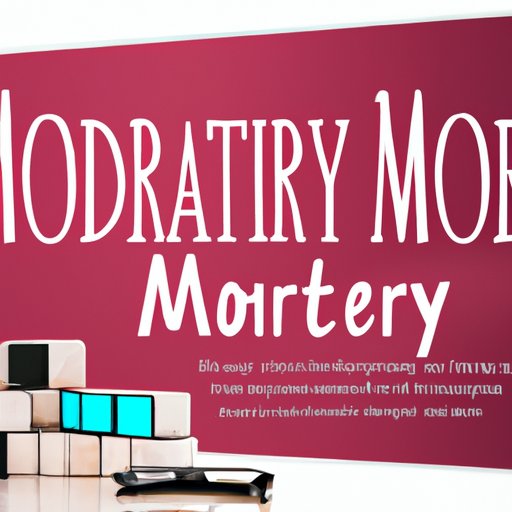Introduction
Visual impairment is a widespread issue that affects millions of people worldwide. Whether an individual has been born with a visual impairment or has lost their sight over time, the challenges can be substantial. Simple daily tasks such as reading and driving can become difficult, and feelings of isolation and depression can arise.
The purpose of this article is to provide information and solutions for those who may be experiencing similar issues. By gaining a deeper understanding of how the eyes process visual information and the impact of visual impairment, individuals can learn to navigate the world with greater ease while embracing new perspectives that can enrich their lives.
The Science of Sight: How Our Eyes Process Visual Information
The eyes are complex organs that work together to collect visual information and transmit it to the brain for processing. Each component of the eye plays a crucial role in sight, from the cornea and iris to the lens and retina. When visual information enters the eye, it is refracted and focused onto the retina, which contains photoreceptor cells that convert light into electrical signals that the brain can interpret.
However, certain visual impairments can interfere with these processes. For example, conditions such as cataracts, glaucoma, and age-related macular degeneration can damage the lens or retina, resulting in blurred or distorted vision. Treatment options for these conditions range from prescription glasses or contact lenses to surgical procedures.

Seeing Is Believing: The Importance of Visual Perception
Having clear and accurate vision is vital in the modern world. In addition to routine tasks such as driving and reading, visual perception plays a critical role in jobs that require attention to detail, such as graphic design or video editing. Impaired vision can make these tasks more challenging and lead to feelings of frustration and limitation.
The emotional toll of visual impairment cannot be ignored, as it can result in feelings of isolation, depression, and anxiety. Individuals with visual impairments may feel cut off from certain social activities or face barriers to employment. However, there are solutions available to help individuals overcome these challenges, and stories of individuals who have achieved success despite their visual impairments can serve as inspiration.
Defying the Odds: Stories of People with Visual Impairments and Their Achievements
There are countless inspiring stories of individuals who have excelled in their respective fields despite visual impairments. From musicians like Stevie Wonder to athletes like Marla Runyan, these individuals serve as examples of what is possible when determination and creativity are employed. Some common tools that these individuals may have used to overcome their challenges include assistive devices such as screen readers, braille displays, and magnification tools.
These stories of success can also serve as motivation for those experiencing visual impairment. By realizing that others have overcome similar challenges, individuals can be inspired to look for solutions and employ a growth mindset.
The Secret Life of Your Eyes: Common Eye Conditions and How to Keep Them Healthy
Understanding common eye conditions and taking steps to maintain healthy eyes is essential for those experiencing visual impairment. Common conditions include myopia (nearsightedness), hyperopia (farsightedness), astigmatism (distorted vision), and presbyopia (age-related vision changes).
Early detection of these conditions is crucial, as many can be treated or managed with prescription lenses or corrective surgeries. Additionally, maintaining a healthy diet and protecting the eyes from UV rays can help prevent certain eye conditions from developing.
The Art of Observation: How to Train Your Eye to See More Detail
Visual perception is not solely determined by the eyes; the brain also plays a crucial role. In fact, the brain often fills in gaps in visual information to create a complete picture of what we see.
However, individuals can improve their visual perception skills through training exercises and techniques that increase their attention to detail and focus. By practicing observing details in the environment, individuals can strengthen their critical thinking skills and increase mindfulness in everyday life.
Beyond the Visible: Exploring the World of Infrared and Ultraviolet Vision
Humans can only see a small portion of the electromagnetic spectrum, known as the visible spectrum. However, many animals can see beyond these limits to perceive different forms of light, such as infrared and ultraviolet.
Scientists are exploring the potential for new technologies that allow humans to see beyond the visible spectrum, such as infrared goggles or ultraviolet-sensitive contact lenses. These technologies could have significant practical applications, such as in medical imaging or surveillance.
Visualizing Success: Using Mental Imagery to Achieve Your Goals
One powerful tool for enhancing mental and physical performance is visualization, or the practice of vividly imagining a desired outcome. Visualization has been shown to improve motivation, focus, and self-confidence, especially in athletes and performers.
Individuals with visual impairments can also benefit from visualization techniques by imagining themselves in situations where their vision is not a limitation. This practice can help individuals overcome feelings of frustration or limitation and embrace their potential for success.
Conclusion
Visual impairment poses many challenges, but with a combination of solutions, support, and the right mindset, individuals can overcome these challenges and embrace new perspectives. Understanding the science of sight, the importance of visual perception, and the advantages of maintaining healthy eyes and improving visual perception can equip individuals with the tools and inspiration necessary to achieve their goals.
If you are experiencing visual impairment, please remember that there is support and assistance available to you. By seeking out resources and assistance, you can overcome obstacles and embrace new opportunities for growth and success.
